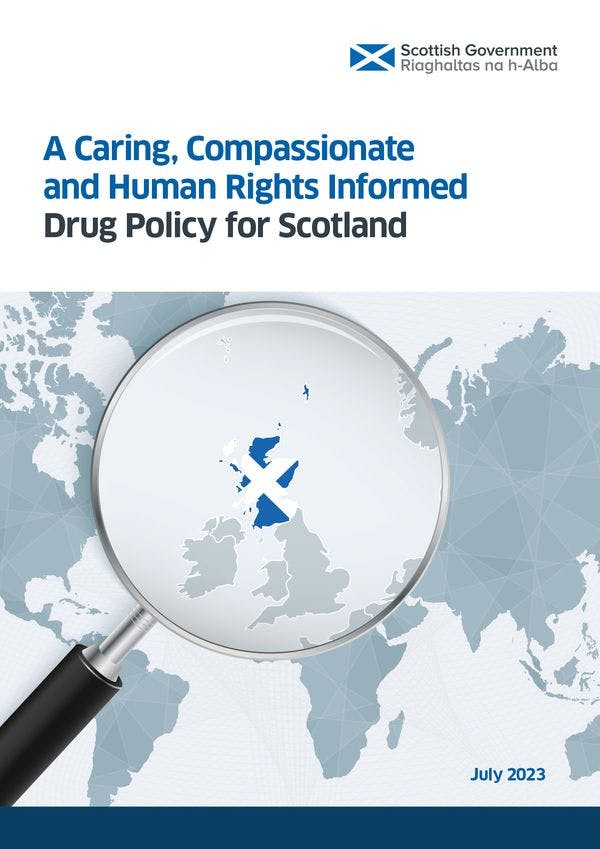Una política de drogas para Escocia basada en el cuidado, la compasión y los derechos humanos
El gobierno escocés propone reformas de la legislación británica sobre drogas para apoyar un enfoque de salud pública que facilite las medidas de reducción de daños, incluida la descriminalización y el debate sobre los mercados de drogas regulados. Más información, en inglés, está disponible abajo.
The Scottish government proposes reforms to the UK's drug laws to support a public health approach that facilitates harm reduction measures, including decriminalisation and debate on regulated drug markets. Más información, en inglés, está disponible abajo.
Drug deaths have increased substantially over the past few decades. In 2021, there were 1,330 drug misuse deaths registered in Scotland, a decrease of 1% (9 deaths) compared with 2020 but the second highest annual total on record. People in the 20% most deprived areas were more than 15 times as likely to have a drug misuse death as those in the 20% least deprived areas – that ratio has widened over the past two decades. Scotland’s drug death rate is the highest in the UK, and higher than that of any European country.
In January 2021, Scotland’s then First Minister Nicola Sturgeon announced a National Mission to reduce drug deaths and improve lives, to be spearheaded by a dedicated Minister for Drugs Policy. This is supported by an additional investment of £250 million over the five-year life of the Parliament.
The Mission takes a holistic, public health response to the challenge. This includes mobilising an emergency response, focusing on harm reduction and preventing fatal overdoses; reducing risk by improving treatment and recovery services; and reducing vulnerability by addressing the social determinants of health by improving access to quality housing, social security, employment and social connection. It also recognises the need to address stigma, respond to the voices of people with lived and living experience and support a resilient workforce.
Approaching this issue from a public health, and not a criminal justice, perspective is key. The rise in drug deaths has been significant enough to contribute to the fall in life expectancy in Scotland. From 2017-2019 to 2019-2021, drug misuse reduced life expectancy by 5.9 weeks for males and 2.5 weeks for females. Drug use disorders pose a sizable threat to Scotland’s population health and wellbeing, and were the third leading cause of health loss in the most recent Scottish Burden of Disease Study, surpassed only by ischaemic heart disease and Alzheimer’s and dementias in healthy life lost as a result of disability and premature death (number of Disability Adjusted Life Years), (Figure 1).
Yet it is the only one of these conditions where we criminalise the people experiencing it. Reducing drug deaths would not just make us safer – the traditional criminal justice measure of success – but crucially, reduce suffering, increase wellbeing and improve Scotland’s health.
This paper argues how the reform of the UK’s drug laws offers an opportunity to contribute to a public health approach. It begins with a summary of how drug laws can affect drug harms, before calling for immediate legislative changes to support harm reduction measures; arguing for decriminalisation of possession for personal supply; and examining the opportunities for a future debate on strict regulated markets.
